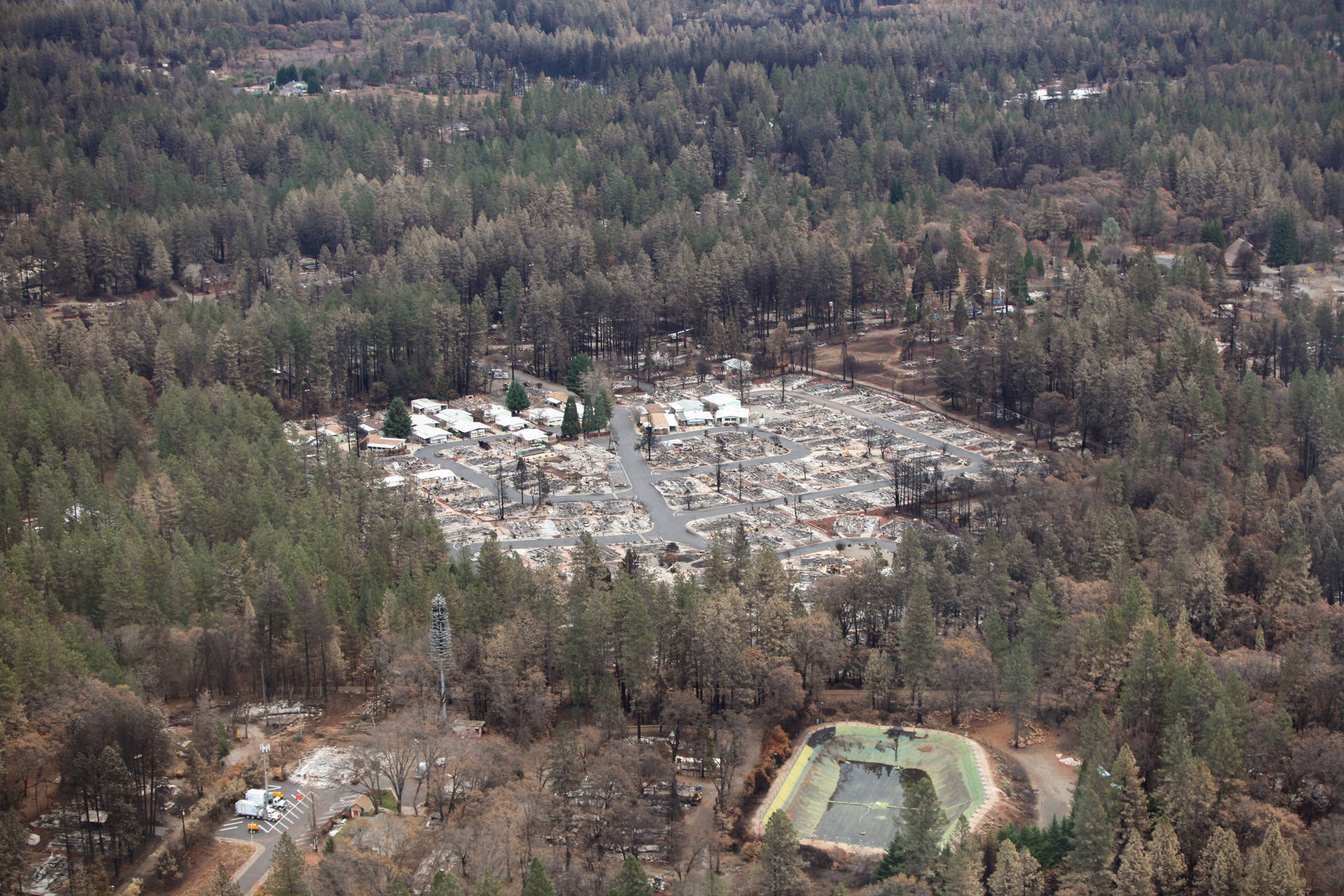Officials in Paradise are trying to understand how much of the city's water supply has been contaminated with a carcinogenic chemical as a result of last November's deadly Camp Fire.
The Paradise Irrigation District announced earlier this month that tests had come back positive for benzene — a flammable chemical used in the production of gasoline and plastic — but the extent of the contamination is still unclear.
Samples collected at some residential water meters didn’t contain any benzene. Other samples did, and one revealed benzene levels about 15 times the state limit for drinking water. According to the Center for Disease Control and Prevention, long-term exposure to benzene can cause anemia or cancer.
The November fire burned down close to 14,000 homes and effectively melted some of the plastic piping in Paradise’s water system, releasing benzene into the water supply, according to Reese Crenshaw, an engineer with the state Division of Drinking Water.
According to Crenshaw and other state officials, this is only the second time that they know of that this has happened. The first was in Santa Rosa, where officials discovered benzene contamination after the devastating Tubbs Fire in 2017.
